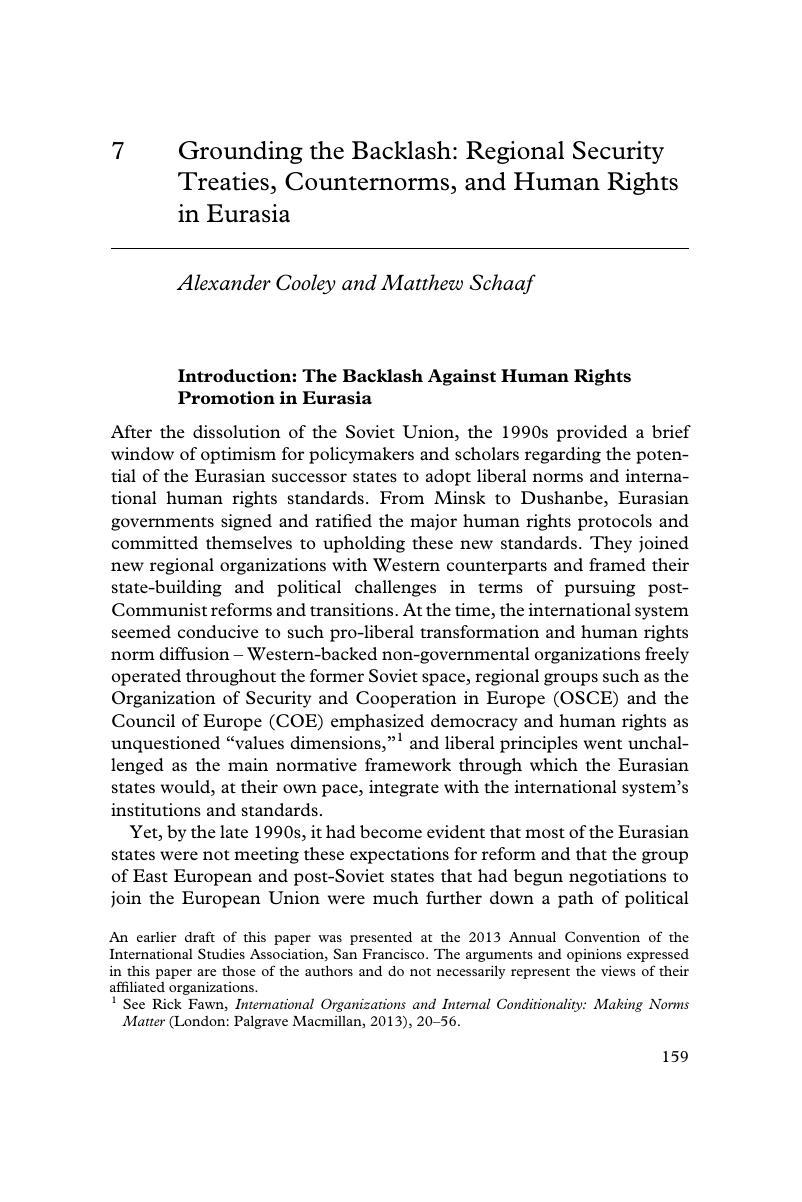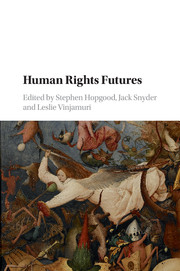Book contents
- Human Rights Futures
- Human Rights Futures
- Copyright page
- Contents
- Figures
- Contributors
- Acknowledgments
- 1 Introduction: Human Rights Past, Present, and Future
- 2 Human Rights Data, Processes, and Outcomes: How Recent Research Points to a Better Future
- 3 Human Rights and Human Welfare: Looking for a “Dark Side” to International Human Rights Law
- 4 Empowering Rights Through Mass Movements, Religion, and Reform Parties
- 5 Human Rights Backlash
- 6 Human Rights in Areas of Limited Statehood: From the Spiral Model to Localization and Translation
- 7 Grounding the Backlash: Regional Security Treaties, Counternorms, and Human Rights in Eurasia
- 8 Governing Religion as Right
- 9 The Vernacularization of Women’s Human Rights
- 10 Re-Framing Human Rights Advocacy: The Rise of Economic Rights
- 11 Human Rights and the Crisis of Liberalism
- 12 Human Rights on the Road to Nowhere
- 13 Conclusion: Human Rights Futures
- Index
- References
7 - Grounding the Backlash: Regional Security Treaties, Counternorms, and Human Rights in Eurasia
Published online by Cambridge University Press: 30 August 2017
- Human Rights Futures
- Human Rights Futures
- Copyright page
- Contents
- Figures
- Contributors
- Acknowledgments
- 1 Introduction: Human Rights Past, Present, and Future
- 2 Human Rights Data, Processes, and Outcomes: How Recent Research Points to a Better Future
- 3 Human Rights and Human Welfare: Looking for a “Dark Side” to International Human Rights Law
- 4 Empowering Rights Through Mass Movements, Religion, and Reform Parties
- 5 Human Rights Backlash
- 6 Human Rights in Areas of Limited Statehood: From the Spiral Model to Localization and Translation
- 7 Grounding the Backlash: Regional Security Treaties, Counternorms, and Human Rights in Eurasia
- 8 Governing Religion as Right
- 9 The Vernacularization of Women’s Human Rights
- 10 Re-Framing Human Rights Advocacy: The Rise of Economic Rights
- 11 Human Rights and the Crisis of Liberalism
- 12 Human Rights on the Road to Nowhere
- 13 Conclusion: Human Rights Futures
- Index
- References
Summary

- Type
- Chapter
- Information
- Human Rights Futures , pp. 159 - 188Publisher: Cambridge University PressPrint publication year: 2017
References
- 10
- Cited by



